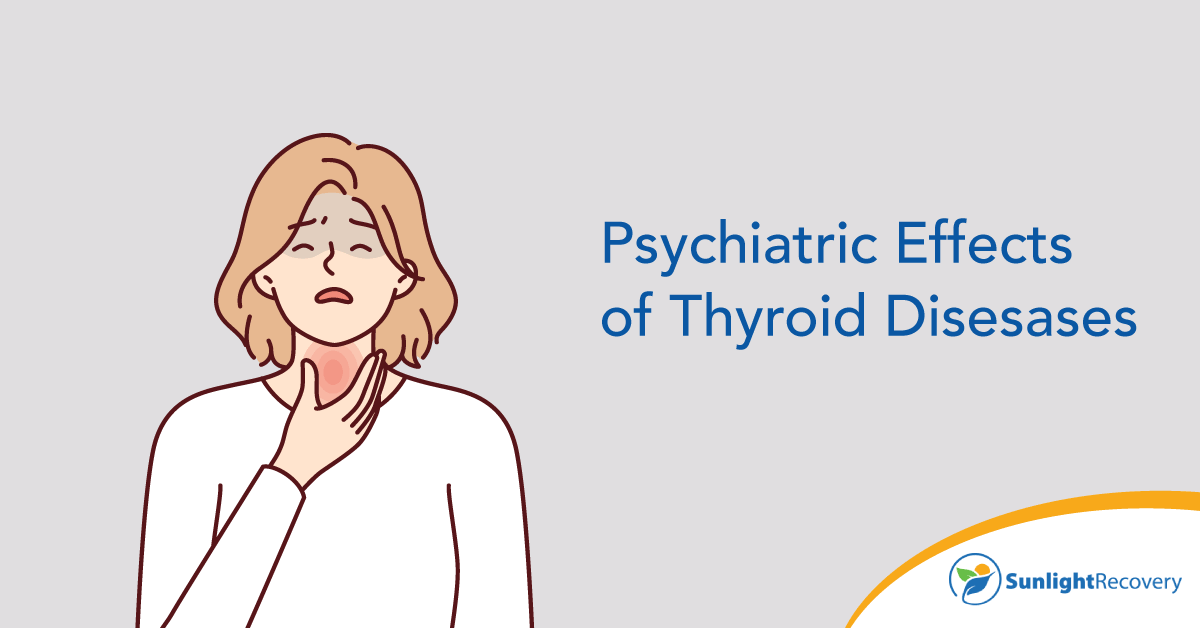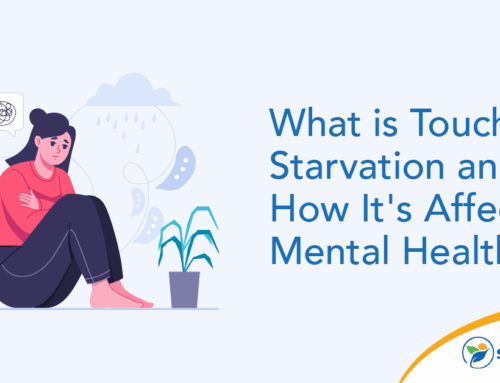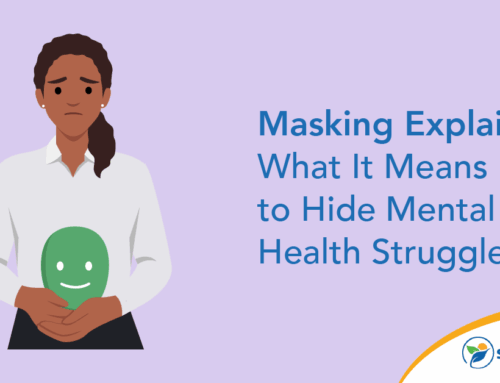The thyroid is a small, butterfly-shaped gland at the base of the neck, just below the voice box. As part of the endocrine system, the thyroid produces the hormones thyroxine (T-4) and triiodothyronine (T-3), which regulate everything from body temperature and heart rate to protein production. It also works with the adrenal glands to speed up and slow down metabolism, helping the body deal with stress. This means stress and thyroid health can go hand in hand.
This article explores thyroid diseases and how stress can affect the thyroid.
Understanding Thyroid Diseases
The thyroid is an important gland that affects overall well-being. Because the early signs of thyroid disease mimic a variety of other conditions, you may go years without realizing you have a problem. Some of the most common early warning signs include fatigue, unexplained weight loss or gain, sensitivity to temperature, vision problems and changes in skin and hair.
In some cases, stress can cause hypothyroidism. When an individual is stressed, thyroid autoantibodies and cortisol levels rise, sending signals to the thyroid to stop producing as much thyroid hormone.
If you suspect you have a thyroid problem, schedule a visit with your physician for a complete physical. With proper treatment, the majority of symptoms improve, allowing you to live a normal life.
Types of Disorders
A malfunctioning thyroid can cause a wide range of symptoms that vary from one person to another. Following are some of the most common disorders.
- Hypothyroidism. Hypothyroidism, or underactive thyroid, occurs when the thyroid gland fails to make enough thyroid hormones to keep the body running efficiently. Symptoms of an underactive thyroid may include weight gain, excessive fatigue and a slow heart rate. In addition, hypothyroidism can cause stress due to the fluctuations in hormones. Individuals with hypothyroidism may feel cold and experience stiff muscles, unusual aches and pains, high cholesterol and depression. Symptoms may go unnoticed at first, but without treatment, the condition worsens over time. Approximately 5% of individuals aged 12 and older in the United States have hypothyroidism, and it tends to occur more frequently in women than in men.
- Hyperthyroidism. Also referred to as overactive thyroid, hyperthyroidism is a condition in which the gland produces too much hormone, speeding up the metabolism. Less than 1% of the population has or will develop hyperthyroidism. The condition occurs more frequently in those who have vitamin B12 anemia, consume large amounts of foods containing iodine, smoke or have a history of thyroid disease. Complications from hyperthyroidism include osteoporosis, irregular or fast heart rates, fertility issues, shakiness and enlargement of the glands in the neck.
- Hashimoto’s. Hashimoto’s disease is an autoimmune disease that causes chronic inflammation of the gland and eventual destruction of the tissue. The main cause of hypothyroidism, this disease accompanies other autoimmune disorders, such as celiac disease, lupus, rheumatoid arthritis and type 1 diabetes. Occasionally, individuals with Hashimoto’s may experience swelling or a feeling of fullness in the throat, making swallowing difficult.
- Thyroid tumors and cancer. Lumps in or on the thyroid gland are common. Approximately half of Americans will develop a thyroid nodule by age 60. Fortunately, most lumps are benign, but an ultrasound and biopsy can provide insights into the condition of the tumor. Cancerous tumors of the thyroid have a high treatment success rate. Treatment may involve thyroid removal or radiofrequency ablation.
- Postpartum thyroiditis. Approximately 3% of women develop thyroid inflammation after giving birth. The causes of this condition are unknown; however, those with type 1 diabetes or a personal or family history of thyroid problems may be at higher risk. Postpartum thyroiditis symptoms vary from one person to another and may mimic those of hyperthyroidism or hypothyroidism.
- Graves’ disease. Graves’ disease is an autoimmune disorder that may lead to hyperthyroidism, a condition that causes the production of too much thyroid hormone. Individuals with Graves’ disease may have thin, warm and moist skin, and they may experience a rapid heart rate, unexplained weight loss and feelings of shakiness or nervousness.
Connection Between Thyroid Function and Mental Health
The thyroid gland produces thyroid hormones, which directly impact energy levels and mood. Fluctuating hormones can be a major contributor to depression, which is commonly seen in conditions such as premenstrual syndrome and menopause. Typically, the more severe the thyroid disease, the more severe the mood changes. In addition, elevated levels of stress and thyroid disorders tend to accompany one another.
Common Psychiatric Symptoms
“Psychiatric” is a term most commonly associated with severe mental illnesses, such as bipolar disorder, PTSD, schizophrenia and neurodevelopmental disorders. Symptoms of these illnesses vary and may result from an underlying condition, such as thyroid disease. The most common psychiatric symptoms of thyroid disease include:
- Anxiety
- Depression
- Mood swings
- Brain fog
- Short-term memory loss
- Fatigue
- Hyperactivity
- Restlessness
Diagnosis and Treatment Options
To determine if you have a thyroid problem, your physician performs a medical evaluation, including gathering information on your family’s medical history. Blood tests reveal the levels of thyroid hormones in the blood and indicate whether a problem exists. Depending on your symptoms and the issue, you may also require an ultrasound of the thyroid gland or other imaging tests.
Treatment of thyroid disease varies depending on the diagnosis. For hyperthyroidism, you may be prescribed antithyroid drugs or iodine pills, which block the gland from producing hormones. For hypothyroidism, the main treatment is thyroid-replacement medications. Once you’ve been diagnosed with thyroid problems, your doctor will perform regular blood tests to ensure your thyroid levels remain at therapeutic levels.
In cases where stress is a factor in hypothyroidism, it’s important to practice stress management techniques, such as healthy eating, getting enough sleep, meditation and yoga.
Managing Mental Health
Managing mental health when you have an underlying thyroid condition requires a comprehensive approach to treatment. Providing treatment can often alleviate many symptoms of stress, anxiety and depression, which makes it much easier to treat your mental health.
Reaching Out for Help Managing Stress and Thyroid Conditions
If you’re ready to get help with a mental health condition and don’t know where to start, contact Sunlight Recovery to speak to one of our counselors. We can help you address your daily struggles and set you on the path to a better life.







